91 F. high in the Twin Cities Friday (heat indices reached the upper 90s)
77 F. average high on June 10.
79 F. high on June 10, 2015.
Trace of rain reported at KMSP Friday.
June 11, 2011:
Severe thunderstorms bring extremely strong wind to central Minnesota.
An unofficial wind gust of 119 mph is reported at a seed farm 1 mile
northwest of Atwater. A storm chaser's car was battered when he got too
close to the storm. Most of the windows in the car were broken.
June 11, 1996: 5.91 inches of rain fall at Mankato. Mudslides close roads, including Hwy. 169, and push a trailer home 20 feet down a hill.
June 11, 1922: A hailstorm at Maple Plain causes extensive damage to crops.
 Breathing Easier Today But Extra-Soggy Next Week
Breathing Easier Today But Extra-Soggy Next WeekHey,
if the weather didn't change every once in a while we'd have nothing to
talk about. Even for a jaded, semi-cynical weather observer yesterday
was jaw-dropping, with a Heat Advisory, Smog Alert and a significant
severe storm threat. Other than that it was a lovely Friday.
The
immediate metro area dodged a stormy bullet with the most intense squall
line pushing south and east of the Twin Cities, but there were reports
of enough hail to damage cars and plants in Burnsville. When it gets
that hot and humid with strong winds near the ground, an atmospheric
toxic brew, be on the lookout for wild storms.
A wind shift to the
northeast drops dew points into the low 60s today. In spite of low 90s
it won't feel as oppressively humid. Soak up a (rare) dry day because
T-storms return on
Sunday
and long-range guidance hints at some 1 to 3 inch rainfall amounts next
week. The ECMWF model shows a storm temporarily stalling over Minnesota
by the middle of next week as temperatures cool.
With any luck we'll be back into the 80s with sunshine next weekend. Yes, every weekend matters.
Friday Severe Storm Reports.
The well-anticipated squall line literally blew up directly above the
Twin Cities; reports of hail big enough to damage cars and plants in
Burnsville, but the line intensified as it pushed across southern
Minnesota and Wisconsin. I saw numerous reports of 1-2" diameter hail;
wind gusts as high as 75 mph at Cannon Falls. Map credit: Aeris
Enterprise.
A More Tolerable Heat Index.
Today will still border on hot, but dew points drop from low 70s into
the low 60s, so it should feel better out there. Lot's of sunshine, no
pulsating red blobs on Doppler - today definitely the nicer day of the
weekend for outdoor plans. Heat Index plot: Aeris Enterprise.
Cooling Trend Next Week.
ECMWF guidance shows temperatures cooling off a bit next week; not
buying 60s on Wednesday yet, but a storm forecast to temporarily stall
over Minnesota by midweek should result in a few relatively cool days
before we warm up again next weekend. Graphic: WeatherBell.
Quiet Saturday - Storms Return Sunday.
I get to unplug the Doppler today; less checking radar on my phone -
worrying about watches and warnings. A weak push of slightly drier air
treats us to sunshine, with less humidity and a light northeast breeze.
Soak it up, because 4 km NAM guidance brings bands of showers and
T-storms back into Minnesota Sunday. Source: AerisWeather.
Another Wet Week?
Models continue to suggest at least an inch or two of rain for many
locations, coming in a few sloppy spurts: Sunday, again Wednesday and
Thursday as a southern storm pinwheels right over Minnesota.
Heating Up Again Late June.
At least that's the impression looking at predicted 500 mb (GFS) winds
roughly 2 weeks out, showing a bloated heat-pump high pressure ridge
over the Rockies and Plains.
From Frost to Heat Advisories in Less Than One Week. Dr. Mark Seeley has details on the frost event that took place just 3-4 days ago up north in this week's edition of
Minnesota WeatherTalk; here's a clip: "
June
7 and 8 brought cold morning temperatures to many parts of the state,
especially northeastern counties. Many climate observers reported
morning lows in the 30s F, and several reported frost. A number of
climate stations also reported new record daily low temperatures. These
included:
June 7th 37F at Kabetogama and Littlefork
June 8th: 28F at Crane Lake; 29F at Hibbing and Orr; 30F at International Falls and Babbitt; and 37F at Sandstone.
Actually
frosts this time of year are not all that unusual in northern Minnesota
counties, with a 10 to 20 percent historical frequency during the 2nd
week of June..."
El Nino Had a Good Run, But Now It's Over. Here's a clip from
Climate Central: "...
On Thursday, the National Oceanic and Atmospheric Administration (NOAA) announced that the past year’s El Niño
was no more. The declaration comes a few weeks after Australia’s Bureau
of Meteorology, the other big El Niño monitoring group, also declared
it dead and gone.
That means ocean temperatures in the eastern tropical Pacific are now
near normal. But they might not stay that way for long as odds are
pointing to a cooling in the region that could herald the arrival of a La Niña event later this fall..."
Image credit: "
Sea surface temperature anomalies in the tropical Pacific show the dissipation of El Niño." Credit: NOAA
Heat Soars to Record Levels Across West, Heads East. Here are a few interesting weather nuggets in a story at
WXshift: "...
Several
spots in the West set new high temperature records last week. Phoenix
is normally hot this time of year, with a normal high of 102°F (39°C),
but there were four consecutive days (June 3-6) when the high was more
than 110°F (43°C). Each of those four days brought a new record high,
with the temperature peaking at 115°F (46°C) on June 4. Even
traditionally cooler spots of the Pacific Northwest have been especially
hot. According to the National Weather Service in Seattle,
the average temperature for the first week in June this year has been
the second hottest since the 1890s. Similarly, the high of 84°F (29°C)
on June 7 marked the 14th day that was 80°F (26.7°C) or warmer this
year. The record for the most days at or above 80°F by the end of June
is 15, which was set just last year..."
Image credit: NOAA.
Congress Is Considering Privatizing Key Roles of the Weather Service.
That's a Mistake.
I agree, because the end result may be meteorological anarchy,
conflicting warnings, confusion and loss of life. Here's an excerpt of
an Op-Ed at
The Washington Post: "
Imagine
a future in which tornado warnings are not issued by a single entity,
the National Weather Service, but rather by multiple private companies.
These companies all have different methods and rationale for warnings,
so they aren’t always being issued for the same storms and the same
locations. In this future, warnings as we currently know them have
disappeared. As a storm approaches your neighborhood, you might think
you’re under a tornado warning, but your neighbors are not — you get
your weather from different sources that happen to disagree on the
severity of this storm. There’s a lot of confusion at an extremely
dangerous moment..."
 Europe to America: Your Love of Air Conditioning is Stupid.
Europe to America: Your Love of Air Conditioning is Stupid. Here's an excerpt from
The Washington Post: "...
Overall,
it's safe to say that Europe thinks America's love of air-conditioning
is actually quite daft. Europeans have wondered about this
particular U.S. addiction for a while now: Back in 1992, Cambridge
University Prof. Gwyn Prins called America's love of air-conditioning
the country's "most pervasive and least-noticed epidemic," according to the Economist. And according to the Environmental Protection Agency, it's getting worse: American demand for air-conditioning has only increased over the past decades...."
Photo credit: "
Jean-Philippe
Hugues, left, fills a store shelf with summer air conditioning
products in Marseille, southern France, on July 3, where the temperature
rose to 89.6F." (Claude Paris/AP).
Weird Jet Stream Behavior Could Be Making Greenland's Melting Even Worse, Scientists Say. Here's an excerpt of a Chris Mooney story at The Washington Post: "...I
think we can start to connect these dots and say that increasing loss
of Arctic sea ice is leading to more blocking patterns, which are
contributing to the increasing surface melt on Greenland,” said Jennifer
Francis, the Rutgers University Arctic expert whose ideas about Arctic
melting distorting the jet stream have ignited one of the biggest
ongoing debates in climate science, and who is familiar with the new
study by Tedesco and his colleagues. “Of course, this is bad news for
sea-level rise and maybe also for the ocean circulation as the extra
meltwater appears to be partially responsible for the ‘Cool Blob’ south
of Iceland...”
* The new paper referenced in the previous story is
here.
Terrifying Footage of Deadly Tornado in Oklahoma. Yahoo has the details and link to the video clip: "
This
extended piece of footage tracks a tornado near Katie, Oklahoma, as it
embarks on a path of destruction. The informative and often frightening
commentary gives a sense of the scope and power of the tornado, and the
bravery of the crew as they get remarkable footage of the tornado
itself, and of the damage it left behind..."
Video credit: YouTube/TwistingFury.
The Epic Volcano Eruption That Led to the "Year Without a Summer". Jack Williams explains at The
Capital Weather Gang; here's an excerpt: "...
The
average temperature of the globe dropped a mere 3 degrees, but that
small change proved dramatic for not only Earth’s climate but for life
in the Northern Hemisphere. Some of the worst effects,
including summer-time frost, impacted the eastern U.S. as far south as
Virginia. In Europe and Great Britain the volcano’s effects included not
only the coolest summer on record, but day after day of cloud-covered
skies and above normal rainfall, which caused widespread crop failures,
outbreaks of disease and famine..." (Volcano file image:
mounttambora.com).
 Air Pollution Now Major Contributor to Stroke, Global Study Finds
Air Pollution Now Major Contributor to Stroke, Global Study Finds. Here's a summary of new findings reported at
The Guardian: "
Air
pollution has become a major contributor to stroke for the first time,
with unclean air now blamed for nearly one third of the years of healthy
life lost to the condition worldwide. In an unprecedented survey of
global risk factors for stroke, air pollution in the form of fine
particulate matter ranked seventh in terms of its impact on healthy
lifespan, while household air pollution from burning solid fuels ranked
eighth..."
El Nino, Rising Sea Spur Record "Clear-Sky" Flooding. USA TODAY reports: "
El Niño
and rising sea levels linked to global warming spurred a record number
of days of "nuisance flooding" last year in seven coastal U.S. cities,
according to a federal report. Wilmington, N.C., recorded an all-time
high of 90 days, or one-quarter of the year, partly underwater from the
"clear-sky" flooding, which isn't caused by heavy rain from a storm,
the National Oceanic and Atmospheric Administration (NOAA) said in the
report released Wednesday. Charleston, S.C., also topped its record with
38 days and Key West, Fla., with 14 days..." (File image: Andrew Demp, Yale).
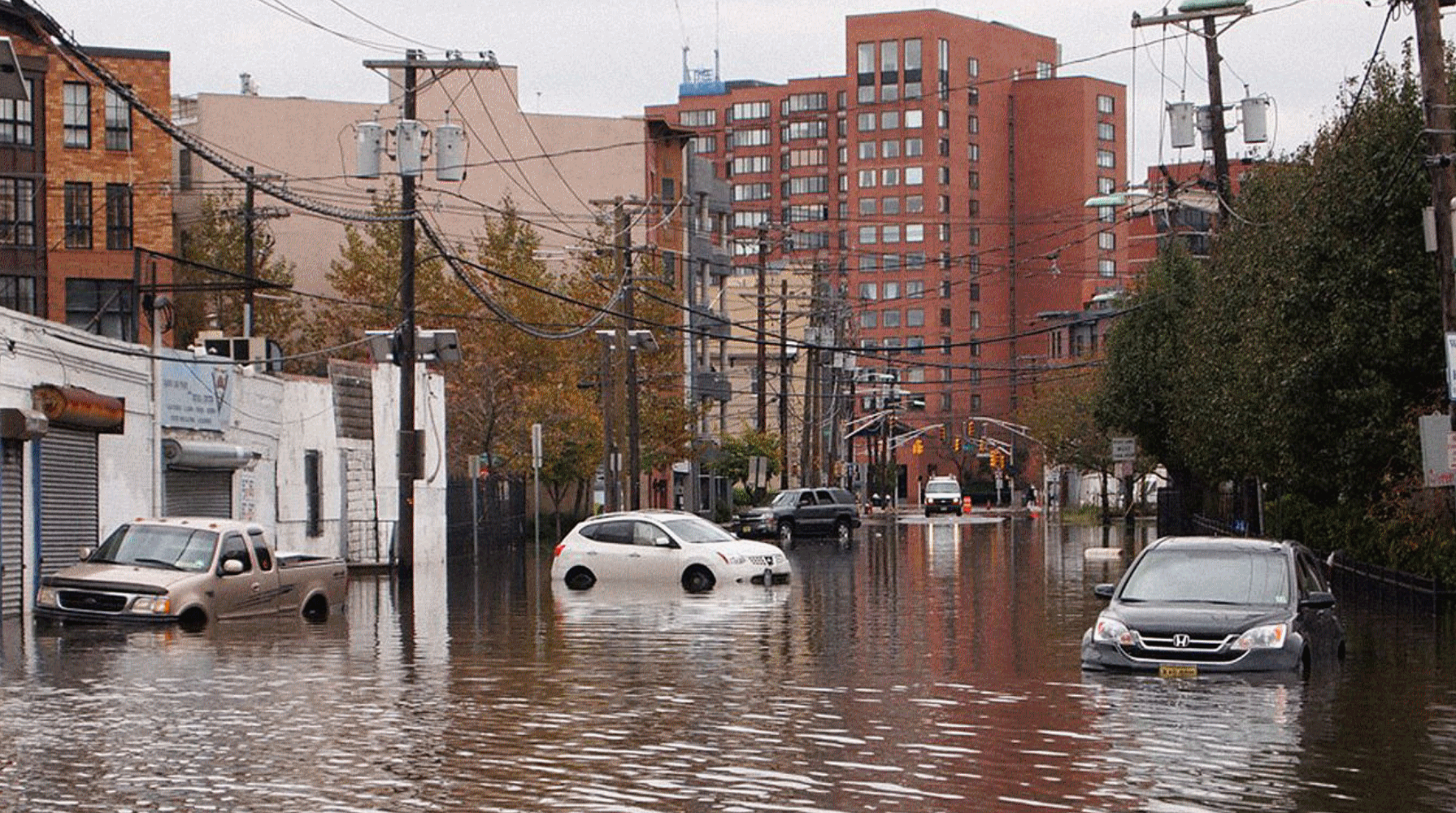 The World's Population is Very Slowly Backing Away from the Dangerous Coasts.
The World's Population is Very Slowly Backing Away from the Dangerous Coasts.
Although growth and development continues to accelerate, new research
suggests the growth in population is slowly spreading away from the
coasts, as highlighted at
Co.Exist: "...
As
of 2010, they found that about 1.9 billion people, or 27% of the
world’s population, lived on the 9% of the planet’s land that is near
the coast (defined as less than 100 kilometers from the shore at lower
than 100 meters elevation). Seventeen out of 30 of the world’s largest
cities are in this area, too. These population estimates come out
slightly higher than previous research done in the 1990s, so the authors
believe there is even more human pressure on coastal areas than we
realize..." (Photo credit: May S. Young, Flickr).
Iceland Carbon Dioxide Storage Project Locks Away Gas, and Fast.
The New York Times reports on promising new technology that may be able to cost-effectively transform CO2 into rock; here's an excerpt: "...
But scientists at Lamont-Doherty Earth Observatory at Columbia University and other institutions have come up with a different way to store CO2
that might eliminate that problem. Their approach involves dissolving
the gas with water and pumping the resulting mixture — soda water,
essentially — down into certain kinds of rocks, where the CO2 reacts with the rock to form a mineral called calcite. By turning the gas into stone, scientists can lock it away permanently..."
Photo credit: "
The
CarbFix project uses carbon dioxide that bubbles up naturally with the
hot magma that powers the Hellisheidi Geothermal Power Station in
Iceland." Credit Bara Kristinsdottir for The New York Times.
Madison Adopts Plan to Cut Carbon Emissions 80% by 2050. Here's the intro to a story at Midwest Energy News: "Madison’s City Council adopted an ambitious energy plan
at its meeting on Tuesday June 7, with only one no vote from the
20-member council. The plan commits the city to reduce its carbon
emissions by 80 percent by 2050, reduce overall energy consumption by
half by 2030, and get a quarter of its electricity, heating and
transportation energy from clean sources by 2025..."
Photo credit: "
The solar panels atop the Madison Public Library can be seen lower right in this January 2015 image."
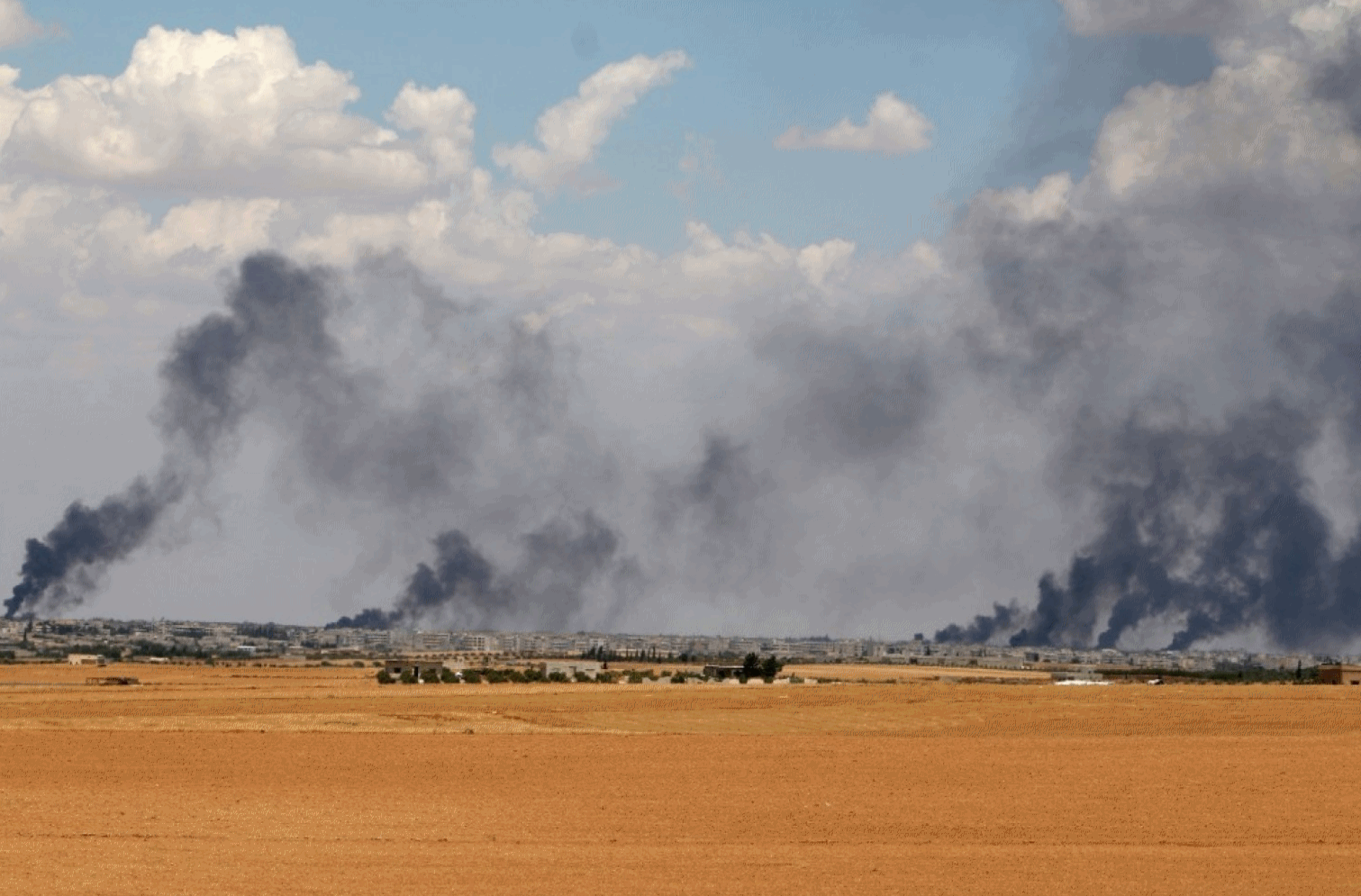 The World Lost More Than $13 Trillion Last Year Because of War
The World Lost More Than $13 Trillion Last Year Because of War.
The Washington Post reports: "
Violence
and worsening conflict cost the world more than $13.6 trillion last
year, according to an annual study of the toll of violence worldwide.
That figure amounts to some 13 percent of global GDP. The analysis can
be found within the Global Peace Index 2016 report,
which is put out each year by the Institute of Economics and Peace, an
Australia-based think-tank. It ranked 163 countries on the degree
of peace within their borders..."
Photo credit: "
Smoke rises from Manbij city in Aleppo province, Syria, on June 8, 2016." (Reuters/Rodi Said).
Delay Pregnancy in Areas With Zika, W.H.O. Suggests. Huh? Here's the intro to a New York Times story: "People living in areas where the Zika virus is circulating should consider delaying pregnancy to avoid having babies with birth defects, the World Health Organization has concluded. The advice affects millions of couples in 46 countries across Latin America and the Caribbean where Zika transmission is occurring or expected. According to a recent study,
more than five million babies are born each year in parts of the
Western Hemisphere where the mosquitoes known to spread the virus are
found..."
Image credit: Climate Nexus.
Jobs Threatened by Machines: A Once "Stupid" Concern Gains Respect.
Is this period of disruption different from previous times when it
comes to employment? I want to be the guy in charge of maintaining the
robots. Here's an excerpt from
The New York Times: "...
If
we are facing a not-so-distant future of robot-fueled growth and rising
potential for mass disemployment, maybe it’s time to start thinking
about how to provide a lot more income that isn’t directly tied to a
job. Jeffrey D. Sachs of Columbia University has been working with a
series of colleagues on an economic model of
a world in which robotization both raises economic output and
immiserates workers, pushing them out of their jobs. It is not a
theoretical impossibility..."
Can We Learn to Live Without Death?
Don't hold your breath, but some of Silicon Valley's biggest companies
are jumping into the life-extension movement. Here's an excerpt of a
good read at How We Get To Next: "...In
short, our culture seems to suggest that if we radically extend our
lifespans, we’re destined to become hedonistic demigods, kill ourselves,
or wind up watching Friends
repeats until the sun burns out. But de Grey, who has little time for
the idea that an increased lifespan will inevitably lead to increased
enervation and tedium, quotes a remark made by one of his friends in
response: “If I’ve got a choice between Alzheimer’s at 80 or being bored
at 150, I know which one I’d chose..."
Photo credit:
Paul Kline //
CC BY 2.0
Netflix Studied Your Binge-Watching Habits: That Didn't Take Long. Here's a clip from a story at
The New York Times: "...
While Netflix contends that the binge model is what viewers want, some traditional network and cable executives continue to argue
that their week-to-week rollout of original programming keeps their
shows in the cultural conversations for months at a time. Bingeing is
obviously an option at other streaming services; several contacted
Wednesday did not have comparable data, or did not respond to requests
for it. But Ms. Holland said the study proved to the company that, yes,
Netflix viewers were inclined to binge, and reinforced the company’s
faith in its policy of releasing all the episodes of an original series
at once..."

Every Company is a Technology Company. Amen to that.
Fortune has important perspective that rings true; here's an excerpt: "...
Herein,
as you’ll see, lies a lesson (or several). In today’s economy almost
every big company, even one selling dental drills, is on a journey of
digital transformation. Cloud and mobile computing, ubiquitous sensors
producing endless streams of data, and ever more intelligent algorithms
have created the potential to transform nearly every aspect of nearly
every business. Getting ahead in the digital journey can lead to outsize
success, as the Henry Schein story illustrates. Falling behind, in a
race with winner-take-most dynamics, can cause fatal disruption..."
TODAY: Hot sun, but less humid. Winds: NE 5-10. High: 92
SATURDAY NIGHT: Dry evening, T-storm possible late. Low: 67
SUNDAY: Sticky again with a few T-storms. Winds: SE 10-15. High: 86
MONDAY: Wet start, then rapid clearing. Winds: NW 8-13. Wake-up: 71. High: 85
TUESDAY: Fading sun, still pleasant. Winds: SE 10-15. Wake-up: 64. High: 82
WEDNESDAY: Storm stalls, potentially heavy rain. Winds: E 15-25. Wake-up: 66. High: 72
THURSDAY: Lingering showers, still soggy. Winds: NE 10-15. Wake-up: 62. High: 71
FRIDAY: Drying out, becoming partly sunny. Winds: E 10-15. Wake-up: 61. High: 81
Climate Stories...
This Might Get the World to Finally Pay Attention to Climate Change. Gizmodo has the eye-opening report; here's an excerpt: "
Six
British warships stationed in the Persian Gulf are breaking down
because the water is too hot. This week, members of the British Navy testified to the UK’s Defence Committee that
their Type 45 destroyers keep losing power because of high ocean
temperatures. When the ships’ turbines get overheated, they can’t
generate as much energy, resulting in electrical failures. The makers of
the billion-dollar warships, including Rolls-Royce and BAE Systems
Maritime, claim that the ships were not designed to be used in that kind
of environment for an extended amount of time, although they are
supposedly engineered for a wide range of temperatures from sub-Arctic
to tropic..."
Paris Floods Were "Directly" Tied to Global Warming, Study Finds. Another
atmospheric fluke? Probably not, as the weather-dice are increasingly
loaded for freakish flood events. Here's an excerpt of an Andrew
Freedman analysis at
Mashable: "
The
water is still receding along the Seine and Loire Rivers in France,
with cleanup beginning in parts of Bavaria, but scientists are already
out with a study showing that global warming made the floods at the end
of May and early June far more likely compared to a climate that had not
warmed due to greenhouse gas emissions. The analysis, which is known as
an extreme event "attribution study," found that the probability of
three-day precipitation extremes in April through June increased by at
least 40% in France overall due to climate change, with about an 80%
increase in likelihood along the Seine River Basin and close to a 90%
increase in the Loire River Basin..."
Photo credit: "
A boy fishes in the Seine river during floods, in Paris, Sunday, June 5, 2016." Image: Thibault Camus/AP.
Historic May Rainfall Event Across Europe. Here is an excerpt of the report from Climate Central's
World Weather Attribution unit: "..
.Overall,
the probability of 3-day extreme rainfall in this season has increased
by at least 40 percent in France, with the best estimate of about 80
percent on the Seine and about 90 percent on the Loire. All four climate
model ensembles that simulated the statistical properties of the
extremes are in good overall agreement. Results for Germany were
inconclusive. Based on these different approaches — all of which are in
agreement — the team found that global warming increased the likelihood
of the heavy rains associated with the May 29 – 31 event in both the
Seine and the Loire River basins. Return Times: We find that the 3-day
precipitation in the Seine basin was very rare in April–June, with a
return time of roughly one in hundreds of years. The event was less
rare on the Loire, with a return time of roughly 1 in every 50 years..."
Map credit: "
Map
of mean rainfall (in mm) for the 3-day period from May 29 – 31, 2016
over France. b) Map shows 1-day maximum precipitation total (in mm) from
Jan. to June 5th, 2016 over Germany." Source: NOAA/NCEP/CPC.
* More perspective on severe weather attribution in a warming atmosphere from
The New York Times.
Is a Warmer Climate Elevating the Natural "Speed Limit" of Hurricanes and Typhoons? Check out the latest video at
Climate Denial Crock of the Week: "
As the 2016 hurricane season gets underway in the northern hemisphere, the new “This is Not Cool” video features
interview footage shot in December with Kerry Emanuel, one of the most
widely quoted and well known hurricane experts in the world. Nutshell: A
warmer climate is expected to elevate the natural “speed limit” on
hurricane/Tropical Cyclone wind speeds, and accompanying storm surge and
destructiveness. We may already be seeing this play out..."
NATO Secretary General: "Climate Change is Also a Security Threat". Here's a clip from a story at
The Center for Climate and Security: "...
However,
it’s important to note that climate change is not necessarily distinct
from these other security risks, but rather, an important factor placing
strains on the broader security environment in which these risks play
out. Climate change will multiply stress on factors related to peace and
state stability, such as water, energy, food, and migration, all of
which are key elements of instability in NATO’s backyard. As NATO
changes and adapts, how climate change will challenge NATO’s core
missions should be a priority. As the Secretary General continues to
help steer the NATO alliance, it will be important for him to connect
these dots, as history will likely not be kind to a historic summit that
fails to do so..."
For The Tourism Industry, There's No Vacation from Climate Change. GreenBiz has the story; here's an excerpt: "
Vacations
are supposed to be spent in paradise — on sun-kissed beaches with palm
trees gently swaying overhead and clear blue waters that extend to the
horizon. This is a narrative (PDF) that many tourists have come to believe — and that industry marketers have nurtured in their advertising.
But climate change is making it harder for resort owners and tour
operators to make good on this promise. Climate change is having more of
an impact on tourist destinations by eroding beaches and bleaching
coral reefs. Mountain destinations are not immune either, as a warming
climate melts glaciers and snow pack..."
Arctic's Melting Ice Creates Vicious Warming Circle. The
very definition of a positive feedback loop, with negative implications
for weather patterns and subsequent volatility in the planet's weather
systems. Here's the intro to a
USA TODAY story: "
Arctic
sea ice hit a record low in May as scientists discovered the first-ever
link between melting ice in Greenland and a phenomenon known to warm
the area faster than the rest of the Northern Hemisphere. The occurrence
is called "Arctic amplification" and until now, scientists didn't know
Greenland was linked to it, according to a study published Thursday in
the British journal Nature Communications. The phenomenon is fueled by a
feedback loop where rising temperatures melt Arctic sea ice, which
leaves dark open water that absorbs more warmth from the sun, thereby
warming the Arctic even more...." (Image credit:
National Snow and Ice Data Center).

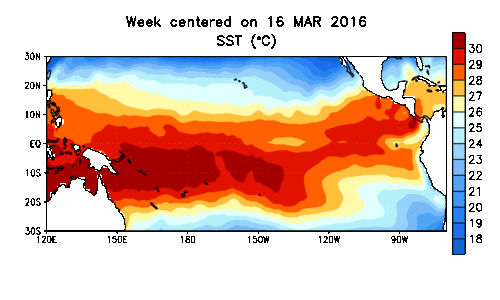
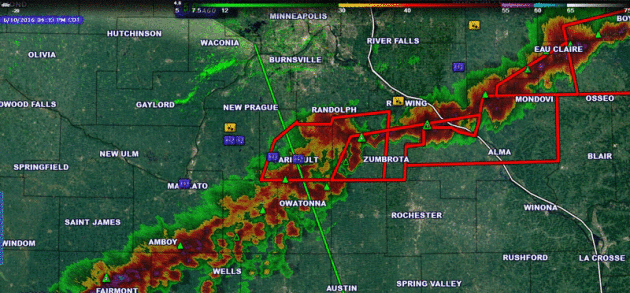
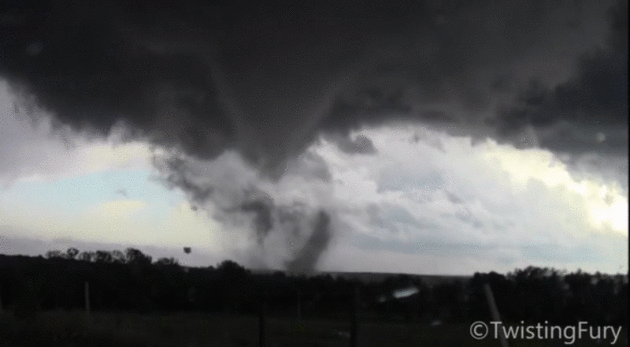
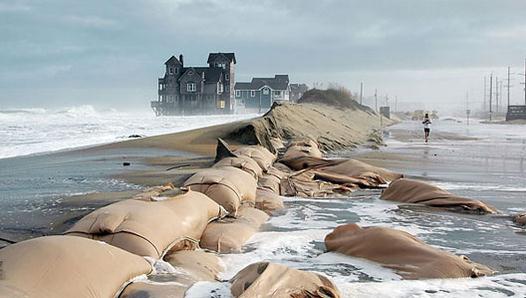



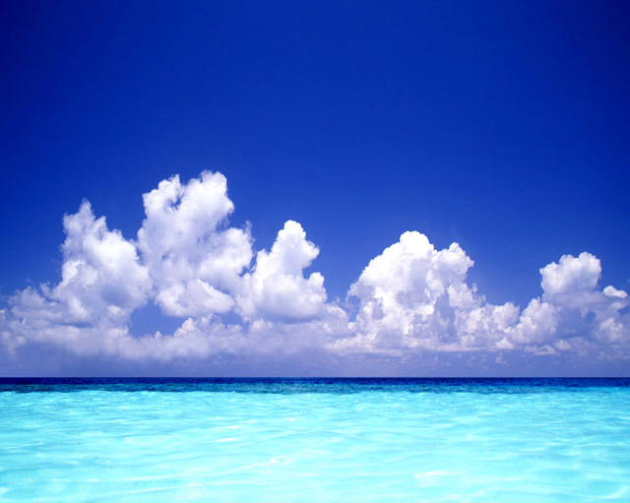
No comments:
Post a Comment